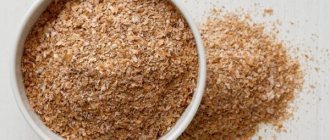Sulfur is an important macronutrient in the human body, which is responsible for the condition of hair, nails and skin. This element affects not only external beauty, but also the health of the body as a whole.
Sulfur (S) is a substance involved in the synthesis of melanin, collagen and keratin. It forms and maintains healthy skin, connective tissue, tendons, and nail hair. In the periodic table of Mendeleev, the substance is assigned atomic number 16. Natural sulfur appears as crystal-like, transparent or translucent yellow formations with an oily sheen. When heated, the yellow color changes to orange and dark red, gradually turning into a liquid state. It is characterized by a sharp, unpleasant odor in its compounds and flammable properties.
Sulfur is also found in amino acids such as methionine, cystine, a number of vitamins, enzymes and hormones. The microelement is not toxic; its compounds with other chemicals pose a danger. It takes part in blood clotting, as it protects protoplasm from the effects of bacteria, affects the condition and growth of hair and nails, and protects the body from rapid aging.
Sulfur deficiency is evidenced by frequent fractures and other injuries of the musculoskeletal system, poor condition of nails and hair. The most common use of sulfur in everyday life is matches; it is thanks to sulfur that they are lit.
History of sulfur. How was sulfur discovered?
Sulfur has been known to man since ancient times. According to the scriptures, ancient priests used this component as part of sacred incense during religious rites. It was also considered a magical and supernatural component that was created by spirits. Sulfur began to be used in flammable mixtures for military purposes in past centuries. There is a version that sulfur was part of the Greek fire, which was so feared by opponents. The Chinese discovered sulfur at the beginning of the 8th century. They used it to produce pyrotechnic mixtures. It was an analogue of gunpowder.
Sulfur is a flammable substance and easily combines with metals to form sulfides. For this reason, the trace element has long been mistakenly considered part of metal ores. The method of oxidative roasting of sulfide copper ore was described in ancient Egypt by Presfiter Teoifilo. During Arab alchemy, the mercury-sulfur theory of metal composition was derived. It was that sulfur was an essential component of all metals. From this theory, the principle of flammability was later derived, which is considered the basis of the phlogiston theory. The first to establish the elemental nature of sulfur was Lavoisier. He conducted experiments on the combustion of trace elements.
Food sources of sulfur. What products can you get sulfur from?
To replenish sulfur reserves in the body, you need to eat a varied diet. You can get a macronutrient from food, both plant and animal origin. Sulfur is found in meat products and fish. Turkey, beef, rabbit and pork are rich in it. Chicken also contains this component. There is slightly less sulfur in turkey liver than in the meat itself.
Among seafood, you should pay attention to flounder, sardines, perch and catfish. Sulfur is contained in quail and chicken eggs. It is rich in cheese, cereals and legumes. Vegetables include cabbage, Brussels sprouts, onions, garlic, turnips and lettuce as sulfur-rich foods. Spinach, asparagus, radishes and horseradish also contain sulfur. Nuts are rich in it. Sulfur is found in chili peppers, nettles and mustard. A small percentage of it can be obtained from bread. Vegetarians are at risk of sulfur deficiency because food of animal origin contains more of the component.
How much sulfur does a person need? Daily norm of sulfur
Scientists have different opinions when discussing the norm of sulfur for humans. Most of them believe that a regular diet consisting of products of plant and animal origin will be sufficient. Others argue that an adult should receive from 4 to 6 grams of sulfur per day. To replenish this amount of the component, you should drink mineral water with sulfates.
Micronutrient-rich foods
To ensure a sufficient supply of sulfur to the human body, one must have a balanced diet, which will include both sufficient amounts of protein and products of animal and plant origin. Also don’t forget vitamin B and amino acids. If you wish, you can consult a nutritionist to create a proper diet.
| Product | Sulfur content per 100 g | Percentage of daily requirement |
| Milk (powdered, low-fat) | 339 mg | 35% |
| Milk (powdered, 35%) | 261 mg | 27% |
| Soybean (grain) | 245 mg | 25% |
| Cottage cheese | 222 mg | 23 % |
| Chickpeas | 200 mg | 21 % |
| Chicken egg (white) | 188 mg | 20 % |
| Cottage cheese 9% | 182 mg | 19% |
| Almond | 200 mg | 19% |
| Chicken egg | 178 mg | 19 % |
| Peas | 172 mg | 18 % |
| Chicken egg (yolk) | 172 mg | 18 % |
| Lentils | 163 mg | 16 % |
| Beans | 160 mg | 17 % |
| Quail egg | 125 mg | 13 % |
| Walnut | 102 mg | 11 % |
| Cabbage | 200 mg | 19 % |
| Poppy | 640 mg | 63 % |
| Beef liver | 239 mg | 22 % |
| Mung beans | 238.6 mg | 24 % |
| Hot smoked fish | 233 mg | 24 % |
| Rabbit meat | 225 mg | 23 % |
| Salmon | 225 mg | 23 % |
| Brynza | 221 mg | 21 % |
Beneficial properties of sulfur on the human body
Sulfur is an essential component for the human body. It is part of the amino acids: methionine and cystine, as well as the vitamin thiamine and the enzyme insulin. The main function of sulfur is to fight harmful bacteria that can harm the blood plasma. Blood clotting depends on the amount of sulfur in the body.
Sulfur also maintains the normal amount of bile produced. This function affects the functioning of the digestive system. Sulfur can slow down the aging process of the body, as it protects it from the effects of radiation and other negative environmental factors. For this reason, this component is often called the queen of macronutrients. However, we should not forget that all beneficial components have a positive effect on the body only in combination.
Sulfur helps collagen synthesis to occur. This substance is responsible for structuring the skin, improving the appearance of the epidermis. The health of skin, nails and hair depends on the amount of sulfur in the body. Cosmetologists recommend collagen injections to maintain beauty. However, all you need to do is consume enough sulfur-containing foods to maintain the appearance of your skin and hair.
For many, it will be a discovery that the durability of a tan depends on the amount of sulfur in the body. It enters into the skin pigment called melanin, improving its quality. Sulfur is part of hemoglobin, on which the transport of oxygen from the respiratory organs to tissue cells directly depends. This component is also responsible for the movement of carbon dioxide from cells to the respiratory organs. Thus, sulfur helps oxygenate the blood, which supports the functioning of the human body.
Daily sulfur intake standards for different age groups
Due to insufficient research into the effect of nutrients on the functioning of the human body, data on daily requirements vary greatly. Some sources indicate that 1200 mg of sulfur per day completely covers human needs, others indicate a dosage of 4-5 g. Doctors note that healthy people need to receive 3-4 g of the mineral daily. To do this, you just need to adhere to a nutritious diet, including the products listed above.
Athletes, schoolchildren, and teenagers need an increased dosage of the nutrient. More minerals are required for people engaged in heavy physical labor and suffering from joint diseases.
Benefits of sulfur for diabetes
Type 1 diabetes is a disease caused by metabolic disorders due to a lack of insulin in the body. Type 2 diabetes is characterized by a loss of the ability of peripheral tissues to metabolize insulin and glucose. Because of this, cells become impenetrable and resistant to insulin or glucose when enough insulin is produced.
Supplementing with sulfur may help with these problems. The trace element can affect the production of insulin and other vital components: thiamine, biotin. Sulfur also helps restore normal blood sugar levels, because. increases the permeability of cell membranes.
Additional benefits of consuming sulfur for hair and skin
Problems with hair and skin most often arise due to a lack of microelements in the blood. The amount of vitamins affects hair color, structure and growth. If you eat a good diet of foods rich in microelements, including sulfur, there should be no problems with your hair. Sulfur is one of the components necessary for the production of collagen and keratin. It also helps create proteins necessary for healthy skin. Sulfur increases the elasticity of the skin, eliminates dryness and restores complexion.
To maintain youthful skin, you need to take sulfur in the form of dietary supplements. Therapeutic cosmetology widely uses sulfur. It is included in many anti-acne and rosacea products. Doctors advise adding more foods containing sulfur to your food to speed up the treatment of psoriasis, dermatitis and eczema. This component effectively fights against dandruff, fungal infections and diaper rash.
Sulfur is an important component in products that heal burns and scars. If a person does not have enough sulfur in his body, rough scar tissue forms at the site of the injury. Sulfur helps slow down the aging process, as it protects the body from the harmful effects of the environment and radiation.
The importance of sulfur for children and pregnant women
Since the macronutrient helps the formation of bone and cartilage tissue, the need for it during pregnancy increases to 6-7 years. Children and adolescents need the nutrient to increase skeletal flexibility, prevent scoliosis, and proper development of the musculoskeletal system. During pregnancy, you should adhere to the correct diet; if necessary, special medications will help compensate for the lack of macronutrients. Children and adolescents are recommended to increase the amount of protein foods to cover the daily requirement for sulfur-containing components.
Sulfur deficiency in the body. What are the consequences of sulfur deficiency for humans?
Disruption of sulfur metabolic processes in the body can harm human health. That’s why doctors recommend regular blood tests. Sulfur deficiency in the body leads to a decline in the body's immune functions. This is fraught with the fact that a person becomes susceptible to any viral and other infections, colds, and fungal diseases. If sulfur reserves are kept low, chronic fatigue and lethargy appear. Sulfur helps remove toxins from the body, and when a component deficiency occurs, the blood vessels become clogged. The risk of waste accumulation increases.
Sulfur is responsible for the quality of the skin, and therefore without a sufficient amount of it, frequent rashes and redness are possible. The skin is the first organ to signal a lack of any component. If a rash appears, analyze your diet. Another sign of sulfur deficiency is loose skin, lifeless hair and thin nails.
With a small amount of sulfur, hair begins to fall out and nails deteriorate. Also, a lack of a component is indicated by poor blood clotting and the development of problems with blood vessels and the stomach. To maintain the level of sulfur in the body, it is necessary to consume products of animal origin, they contain much more of the component. The best sources of sulfur: meat, seafood, eggs, cheeses.
However, if you prefer plant-based foods, then choose legumes, cabbage and greens. Experts believe that vegetable juices will bring the greatest benefit. Fresh vegetables are richer in vitamins than those that have been thermally processed. Freshly squeezed vegetable juice in the morning half an hour before meals is an ideal solution not only for replenishing microelements, but also for improving the health of the entire body.
One glass of freshly squeezed vegetable juice in the morning or 30 minutes before meals will start your gastrointestinal tract, improve food absorption, and improve the tone of the whole body as a whole. It will also increase the concentration of all minerals that benefit the immune system.
Doctors believe that a nutritious diet should be enough to increase sulfur levels in the body, and a person does not require special nutritional supplements or medications. However, the nutrition of modern man is far from ideal. Vegetables and fruits are treated with chemicals, and more and more people are choosing fast food for a snack, and therefore the level of microelements and vitamins is rapidly falling in the body. Therefore, if symptoms of sulfur deficiency appear, consult a doctor who will prescribe you special supplements or prescribe the correct diet.
Medicines containing the mineral
If there is a suspicion of sulfur deficiency, doctors recommend taking vitamin-mineral complexes and dietary supplements containing various forms of this nutrient. These include:
- Dimethyl sulfone or food sulfur;
- Revalid;
- Pantovigar;
- Alerana;
- Laval;
- Merz special dragee.
For local allergic reactions, skin diseases, fungal infections, scabies, demodicosis, a time-tested drug is used - sulfur ointment.
Excess sulfur. What happens when there is an excess of sulfur in the body?
It is extremely rare to encounter an excess of sulfur. It is found only in regions where the percentage of this component in the soil is too high. Sulfur is considered non-toxic when found in food. However, when it comes to a chemical compound, you should be careful, as it causes poisoning and even death. These compounds include hydrogen sulfide and sulfur dioxide.
When hydrogen sulfide vapor enters the respiratory tract, a person immediately begins to experience convulsions, loses consciousness, and possibly stops breathing. After contact with this substance, most of the victims die; those who manage to survive remain disabled. Hydrogen sulfide entering the body leads to paralysis, mental disorders, and disruption of the lungs and gastrointestinal tract. Severe headaches occur.
According to research, sulfur concentrations in the environment have increased recently. More and more sulfites are being added to food products to extend their shelf life. The largest percentage of these additives is found in smoked products, ready-made salads, beer and vinegar. There is also a risk of getting a large dose of sulfur from vegetables that are fertilized with chemicals. Sulfides, accumulating in the body, cause the development of bronchial asthma. Excess sulfur in the body manifests itself almost immediately. Symptoms of too much sulfur:
- itching
- skin inflammation
- irritation throughout the body
- boil formation
- development of conjunctivitis
- the occurrence of a corneal defect
- frequent tearfulness
- Pain in the eyes
- eyeball irritation
- sensitivity to light
- development of anemia
- frequent weakness
- appearance of dizziness
- headache
- causeless nausea
- upper respiratory tract diseases develop;
- hearing loss
- disruption of the gastrointestinal tract
- rapid weight loss
- a sharp decline in intelligence.
In order for sulfur to be better absorbed in the body, it is necessary to maintain normal amounts of fluoride and iron.










